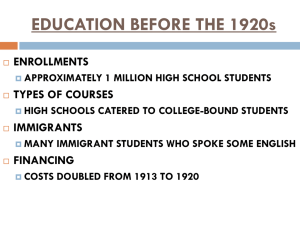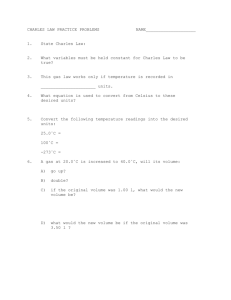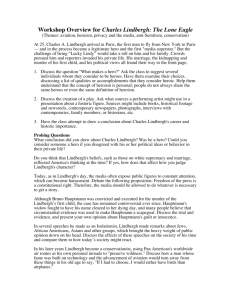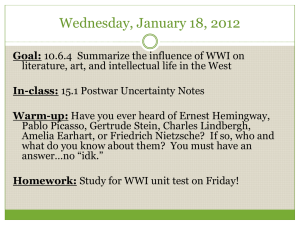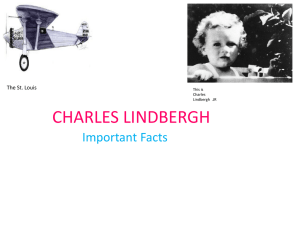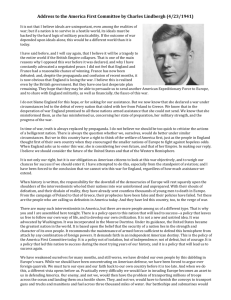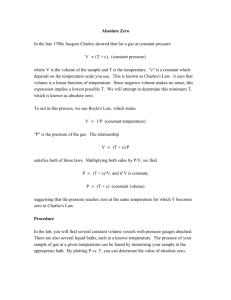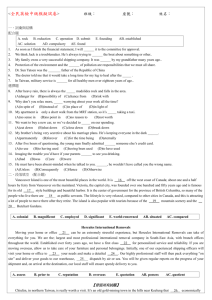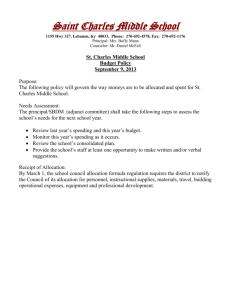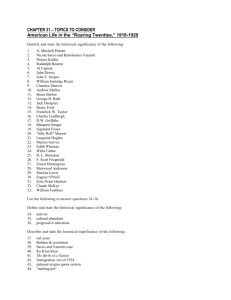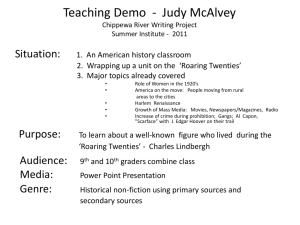Feb 9 lesson Isolation v intervention 2015
advertisement
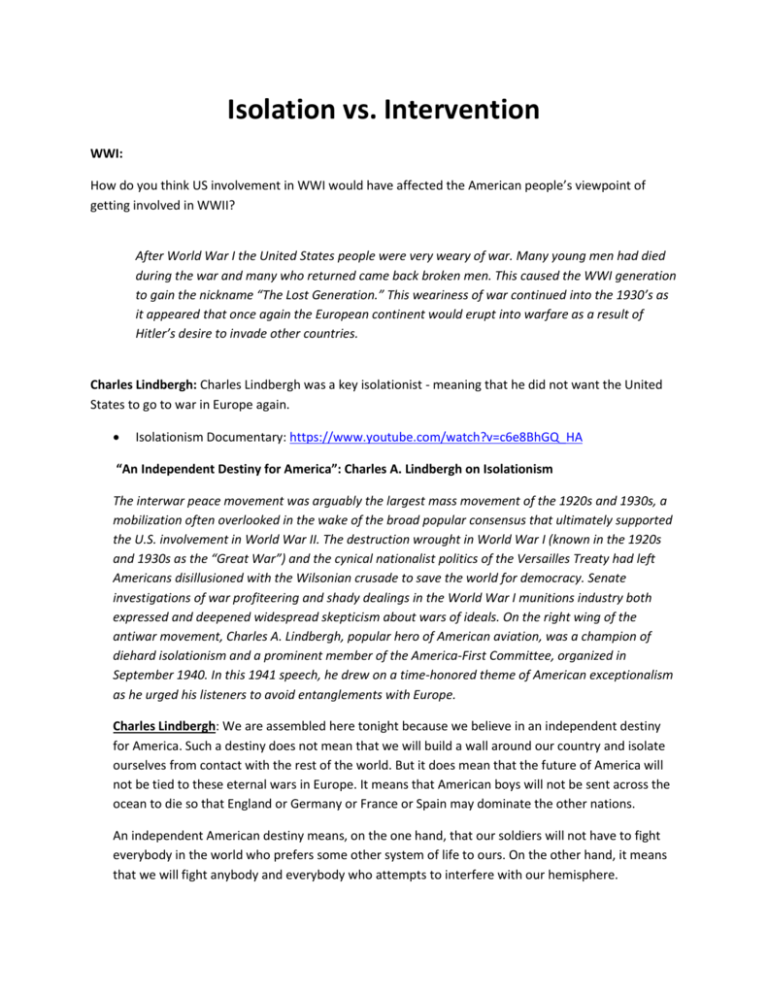
Isolation vs. Intervention WWI: How do you think US involvement in WWI would have affected the American people’s viewpoint of getting involved in WWII? After World War I the United States people were very weary of war. Many young men had died during the war and many who returned came back broken men. This caused the WWI generation to gain the nickname “The Lost Generation.” This weariness of war continued into the 1930’s as it appeared that once again the European continent would erupt into warfare as a result of Hitler’s desire to invade other countries. Charles Lindbergh: Charles Lindbergh was a key isolationist - meaning that he did not want the United States to go to war in Europe again. Isolationism Documentary: https://www.youtube.com/watch?v=c6e8BhGQ_HA “An Independent Destiny for America”: Charles A. Lindbergh on Isolationism The interwar peace movement was arguably the largest mass movement of the 1920s and 1930s, a mobilization often overlooked in the wake of the broad popular consensus that ultimately supported the U.S. involvement in World War II. The destruction wrought in World War I (known in the 1920s and 1930s as the “Great War”) and the cynical nationalist politics of the Versailles Treaty had left Americans disillusioned with the Wilsonian crusade to save the world for democracy. Senate investigations of war profiteering and shady dealings in the World War I munitions industry both expressed and deepened widespread skepticism about wars of ideals. On the right wing of the antiwar movement, Charles A. Lindbergh, popular hero of American aviation, was a champion of diehard isolationism and a prominent member of the America-First Committee, organized in September 1940. In this 1941 speech, he drew on a time-honored theme of American exceptionalism as he urged his listeners to avoid entanglements with Europe. Charles Lindbergh: We are assembled here tonight because we believe in an independent destiny for America. Such a destiny does not mean that we will build a wall around our country and isolate ourselves from contact with the rest of the world. But it does mean that the future of America will not be tied to these eternal wars in Europe. It means that American boys will not be sent across the ocean to die so that England or Germany or France or Spain may dominate the other nations. An independent American destiny means, on the one hand, that our soldiers will not have to fight everybody in the world who prefers some other system of life to ours. On the other hand, it means that we will fight anybody and everybody who attempts to interfere with our hemisphere. The following political cartoons are by Dr. Seuss, the beloved children’s author. Unlike Charles Lindbergh, Dr. Seuss was worried about Hitler’s growing power. He felt that the U.S. should work to help the Allies (Britain and France) in Europe in their fight against Hitler, and that by staying neutral America showing cowardice. Look at the following political cartoons and analyze what they are saying. How does Dr. Seuss disagree with Charles Lindbergh?
